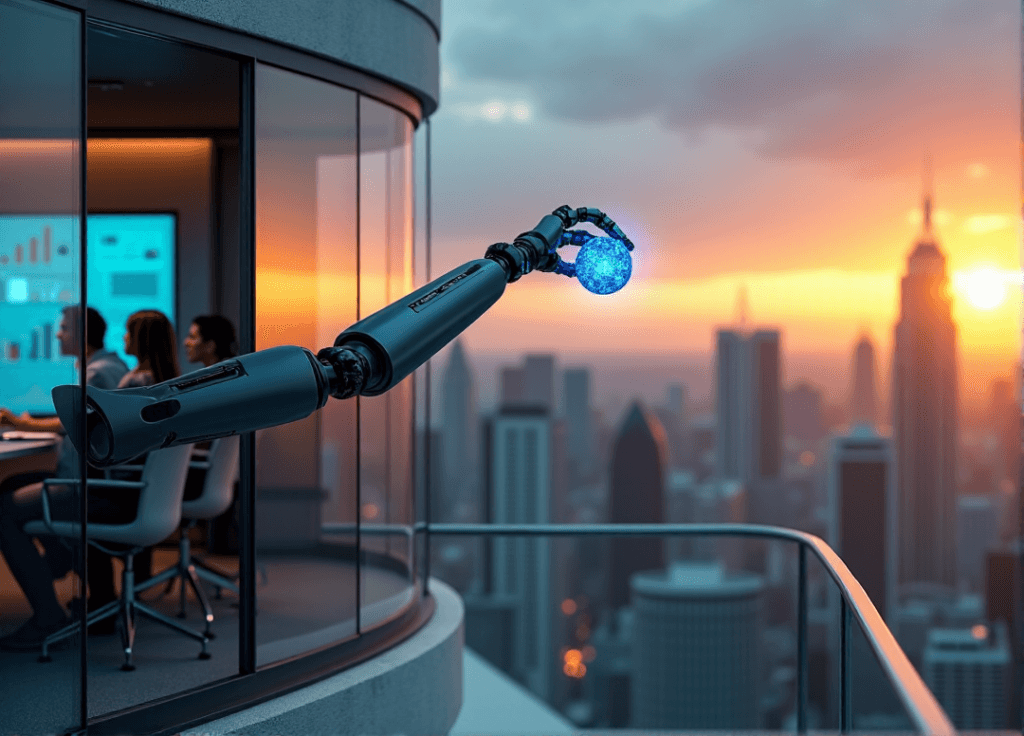Unlocking Business Transformation with AI-Driven Innovation and Automation Excellence
Will AI automation skills replace human workers by 2030, or elevate them to new heights? As businesses continue to adopt AI-driven innovation, developing strong AI automation skills is crucial for unlocking business transformation and staying ahead of the curve. In this article, we’ll explore how mastering AI automation skills can elevate your workforce, drive efficiency, and propel your organization towards a future of unprecedented growth and success.
The Rise of AI in Business Transformation
The adoption of artificial intelligence (AI) has been nothing short of phenomenal over the past decade. From chatbots and virtual assistants to predictive analytics and machine learning algorithms, AI has revolutionized the way businesses operate, interact with customers, and make decisions. As a result, companies are now looking for ways to harness the power of AI to drive business transformation and stay competitive in an increasingly complex market.
The Importance of Developing Strong AI Automation Skills
Developing strong AI automation skills is no longer a nicety but a necessity for businesses that want to remain relevant. With the increasing use of machine learning capabilities, artificial intelligence expertise, and automated process management, companies need employees who can understand, design, and implement AI-driven solutions that meet their unique needs.
The Benefits of Mastering AI Automation Skills
- Improved Efficiency: By automating routine tasks, businesses can free up resources for more strategic and creative work, leading to increased productivity and efficiency.
- Enhanced Customer Experience: AI-driven solutions can help companies provide personalized experiences, anticipate customer needs, and respond in real-time, resulting in improved customer satisfaction and loyalty.
- Increased Accuracy: Machine learning algorithms can analyze vast amounts of data, identify patterns, and make predictions with a high degree of accuracy, reducing the risk of human error and improving decision-making.
- New Revenue Streams: By leveraging AI-driven innovation, companies can create new revenue streams, expand their offerings, and stay ahead of competitors.
The Skills You Need to Master AI Automation Skills
To master AI automation skills, you’ll need a combination of technical, business, and soft skills. Here are some key skills to focus on:
- Programming languages: Python, R, SQL, and other languages that support machine learning and data analysis.
- Data science and analytics: Understanding statistical modeling, data visualization, and predictive analytics.
- Machine learning algorithms: Familiarity with supervised and unsupervised learning, neural networks, and deep learning.
- Business acumen: Understanding business operations, strategy, and decision-making processes.
- Soft skills: Communication, collaboration, problem-solving, and adaptability.
The Future of Work: Will AI Replace Human Workers?
The question on everyone’s mind is whether AI will replace human workers or elevate them to new heights. While AI has the potential to automate routine tasks and enhance productivity, it’s unlikely to replace human workers entirely. Instead, AI will augment human capabilities, freeing up time for more strategic and creative work.
Unlocking Business Transformation with AI-Driven Innovation
To unlock business transformation with AI-driven innovation, you’ll need to develop a clear strategy that aligns with your organization’s goals and objectives. Here are some steps to follow:
- Determine Your AI Goals: Identify areas where AI can drive business value and set specific, measurable goals.
- Assess Your AI Readiness: Evaluate your organization’s data, technology, and skills to determine whether you’re ready for AI-driven innovation.
- Select the Right AI Technology: Choose from a range of AI technologies, including machine learning, natural language processing, and computer vision.
- Develop an AI Talent Strategy: Attract and retain top talent with the right skills to design, implement, and maintain AI-driven solutions.
Case Studies in Business Transformation
Here are some inspiring case studies that demonstrate the power of AI-driven innovation in business transformation:
| Company | Industry | Ai Technology Used | Outcome |
|---|---|---|---|
| GE Appliances | Manufacturing | Machine learning and predictive analytics | Reduced energy consumption by 20% |
| American Express | Financial Services | Natural language processing and chatbots | Improved customer satisfaction ratings by 25% |
| Delta Airlines | Airlines | Machine learning and computer vision | Reduced fuel consumption by 10% |
Conclusion
Mastery of AI automation skills is no longer a luxury but a necessity for businesses that want to stay ahead of the curve. By developing strong AI automation skills, companies can unlock business transformation, drive efficiency, and propel themselves towards unprecedented growth and success.
Additional Sources of Information
For more information on AI-driven innovation and business transformation, check out these reputable sources:
- The World Economic Forum: “The Future of Jobs Report 2020”
- Mckinsey & Company: “A future that works: Automation, employment, and productivity”
- Harvard Business Review: “How to Build an AI-Powered Organization”
References:
[1] World Economic Forum. (2020). The Future of Jobs Report 2020.
[2] Mckinsey & Company. (2017). A future that works: Automation, employment, and productivity.
[3] Harvard Business Review. (2019). How to Build an AI-Powered Organization.
Explore more in our category page or visit our homepage.
